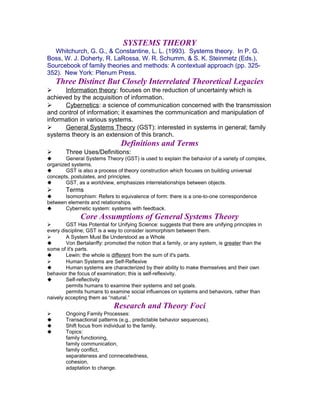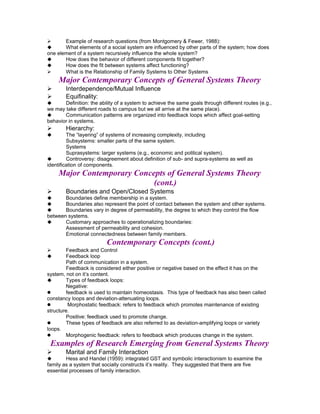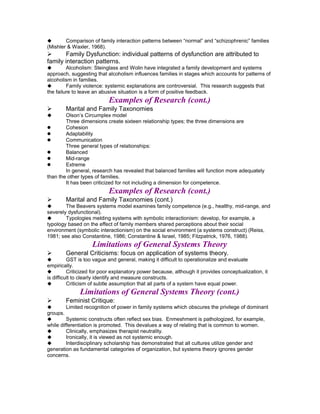This document provides an overview of systems theory and its application to family systems. It discusses three theoretical legacies that influenced systems theory: information theory, cybernetics, and general systems theory. Core assumptions of general systems theory are that there are unifying principles across disciplines and that the whole is greater than the sum of its parts. Contemporary concepts in systems theory include interdependence, equifinality, feedback loops, boundaries, and hierarchy. Examples of research applying systems theory examine family interaction patterns, family dysfunction, and marital and family taxonomies. Limitations discussed include the vagueness of systems theory and feminist critiques of its lack of recognition of power and gender.


